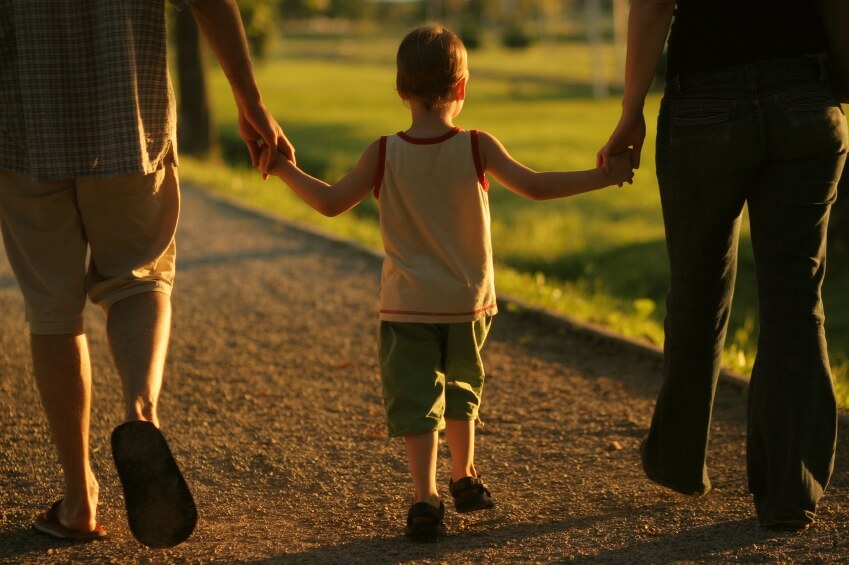
The telephone call was typical of many that I receive as a divorce lawyer at Sharp Family Law based in Bath, UK. After 12 years of marriage and a disastrous summer holiday with their two young daughters, which had not been helped by the unpredictable English weather, Ruth and Alex were separating. Ruth had called to make the appointment and after we had agreed on the arrangements, I encouraged her to elaborate on why it was that she wanted to see me.
Ruth’s call wasn’t a whim. It had followed months of uncertainty, confusion and fear, a summer holiday to get through, for the sake of the children, and the new school year to prepare for and organise. Ruth was worried about Alex’s reaction to a separation, could he cut her off without a penny, would he take the children and run, should she take pre-emptory action?.
As I heard her anxieties and ever increasing “what if’s”, I realised that Ruth and Alex had all the familiar ingredients for a volatile and bitter divorce that would not only financially and emotionally cost them hugely, but also affect their children. How easy it was going to be for their children to get caught in the middle of the emotional and business complications that their parents were going through. The one thing Ruth said that I hoped would ring true was that she and Alex loved their children and wanted to put them first even though their marriage was coming apart.
Putting children first is a common goal of many separating and divorcing parents. But it can often get lost in the web of complicated emotions triggered by a broken relationship and exasperated by a court battle.
In his book “The Truth about Children and Divorce“, Robert Emery (Professor of Psychology and Director of the Centre for Children, Families and Law at the University of Virginia, USA) writes
"……all of my research and all of my work with couples and families demonstrates that what parents do during and after a separation or divorce – how they parent, how they handle their emotions, how they relate to each other and work together – is the key to their children’s resilience in coping with their parents separation or divorce.”
Christina McGhee is an internationally acclaimed divorce coach and parent educator, who has devoted her career to helping children and families successfully manage the challenges of divorce. She writes
"No matter what you may think about divorce. No matter what you may feel about divorce. No matter what your situation or experience, life will change for you and your children. How it changes, is up to you.”
"One of parent’s greatest concerns is how divorce will affect their children. Divorce does not doom children to years of emotional problems or lifelong dysfunction. Exposure to constant parental conflict and unhealthy family situations, however, can significantly impact children’s lives in a negative way.”
Instead Christina encourages parents to
- love their children as much as possible through words and actions;
- tell them repeatedly that divorce is not their fault;
- reassure children that they will be safe;
- let children know it is okay to love both Mum and Dad as they did before;
- support the children’s relationship with both parents;
- listen to their children, honour their feelings without judging, fixing or trying to change how they feel;
- let children know it is okay to express those feelings;
- help children feel like they have a home with both parents regardless of the amount of time spent with each parent;
- provide children with discipline, as well as love, as children still need parents to provide structure and limits especially during difficult times
And in those difficult times, Christina advocates that parents
- avoid badmouthing, judging or criticising the child’s other parent,
- exposing children to divorce details,
- using children as messengers or spies,
- retaliating when the other parent says or does damaging things,
- making children responsible for making adult decisions,
- allowing children to become a parents’ best friend or confidant,
- placing blame when children ask why the divorce happened.
Over the past 25 years I have worked with many separating and divorcing clients who like Ruth and Alex are kind, decent and intelligent individuals, who love their children and want what is best for them and to reach a parental arrangement.
Ruth and Alex had their issues generated by their separation and subsequent divorce. But by following as often as they could the above guidelines and by choosing a method of divorce like Collaborative Practice that puts the interests of children first, Ruth was later able to tell me
"We’re all very well. The kids have settled into the new routine of life. Overall they seem happy and well adjusted. We have regular “family days” where we spend the day together. My ex and I remain flexible with our childcare arrangements.”

